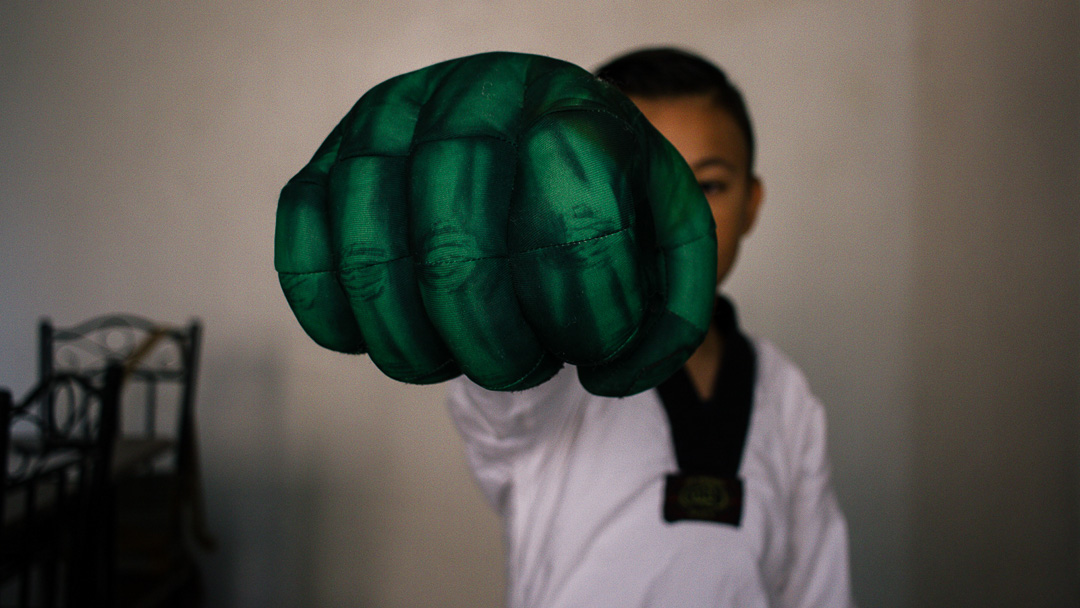

As her son was quite restless and unfocused, Caroline understood that practicing a sport that encompassed discipline will be good for him. She enrolled him in taekwondo and, when the academy closed, because the training staff left Venezuela, she enrolled him in soccer and swimming. But those schools also closed due to lack of teachers and financial problems.

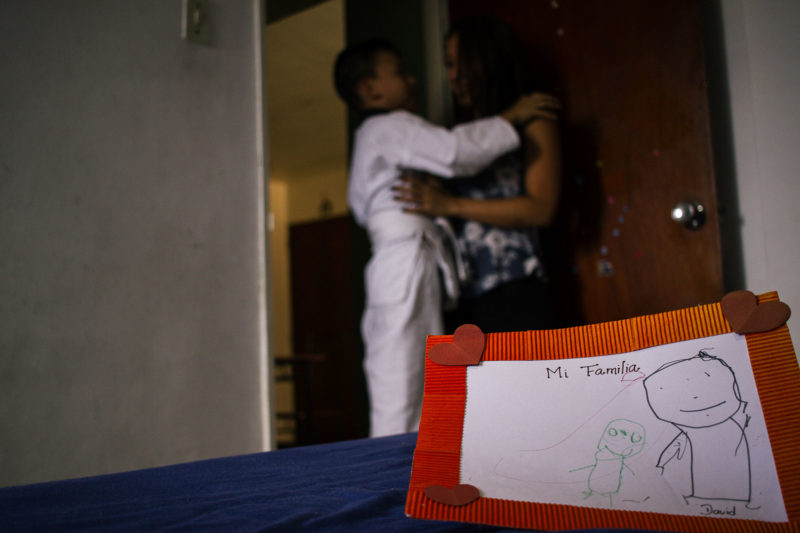 Photographer: Andrea Sandoval
Photographer: Andrea Sandoval
He runs from one place to another, pretending to have the powers of the superheroes who has on his room’s walls. Suddenly he stops: with a straight back, the fists closed and a kick thrown into the air. After a while, he looks for a soccer ball: he crosses it between his legs, kicks it and surprisingly it hits the fridge. As Caroline, his mother, scolds him, then he leaves the ball in some corner and, while she talks, he jumps from a chair and falls on a pouffe, as if he was diving into a pool.
Daniel is 7 years old and he is restless, overflowing with energy; he does not stop.
He spends these days of school holidays watching Tom and Jerry. But he is always ready to do a cartwheel on the bed, stand up, take out one leg and show his fists. Because he wants to be an athlete, he says.
To show his skills -or perhaps to prove without doubt that he learned-, he asks for his white uniform. “Loyalty, determination and perseverance,” he exclaims with his mother’s help. He repeated these three values every Monday, Wednesday and Friday from July 2017 until January 2018. Eight months and he was almost ready to receive the black-belt. He enjoyed taekwondo training, but the school closed for good.
“The teacher left the country, That’s why they closed the schools,” explains Daniel.
Then came soccer and swimming. He also liked the treining. But he will not be able to go back either.
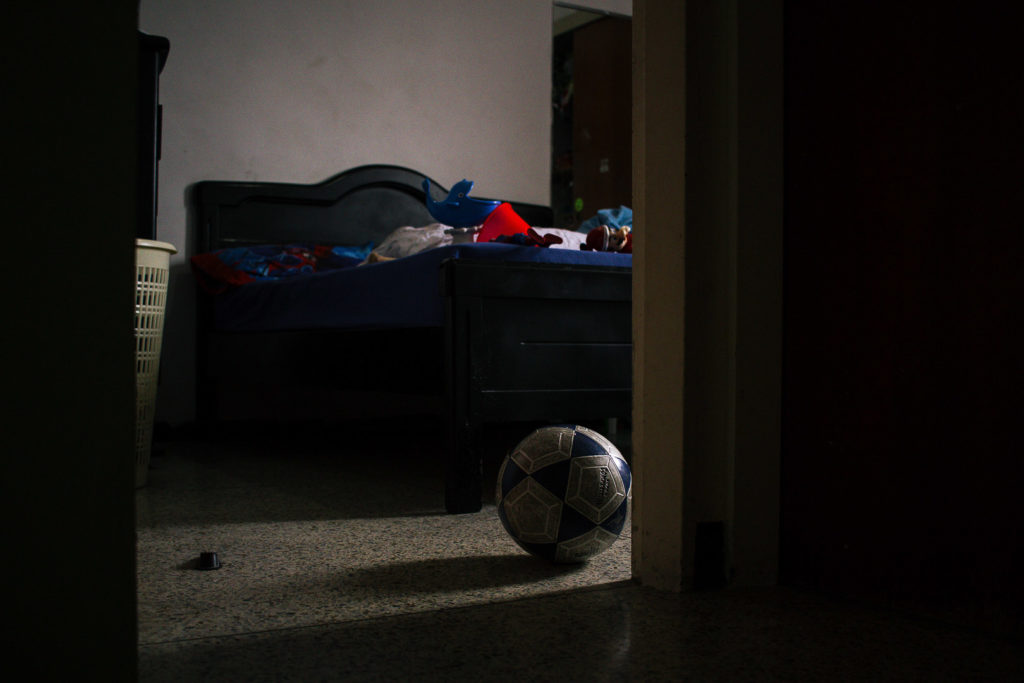
“Mom, what were the teachers’ names?”
“Elisa and Anthony.”
The child begins to forget some things. The academy where he practiced martial arts was a family business, managed by the instructors’ mother: Anthony – 23 years old, black belt and who studied administration, and Elisa, a 16 years trainee. They decided to go to Peru, to be there for the birth of a cousin. Daniel’s mother received the news through WhatsApp one day in January 2018.
Was then when Caroline told her son that the training would have to wait, because the instructors were on vacation to visit the family. They were supposed to return. But in February, the administrator told her that the plans had changed: they would not come back. Opportunities, abroad they said. Maybe at the end they had gone trying to win a fight.
Daniel interrupts the conversation with the memory of blue days in the Caribbean – the beach, the sand, the sun – that suddenly comes to his mind.
“One day we will go to Margarita, mom.”
“When we could afford it, sweet heart.”
“Yes, we still can, yes we can,” he insists.
Daniel also forgets how to put on the dobok – taekwondo uniform-. He asks for help. He is surprised because the uniform still fits, although his pants look shorter. Caught between those fabrics, he assures that ithe got a black-belt. And ask for it.
“No, Daniel, you still did not have it. You were going to change belt,” the mother says, while she ties the white-belt to his waist.
When he’s finally dressed up, he frowns, pulls out his fists, and kicks the air again. This time Caroline is surprised, she dodges it. It is the strength you get when eating carrots, they have told him.
“My coach told me that my kick was fine, that I had to take my leg higher. The hardest thing was to break up, I could not achieve that. It hurts.”
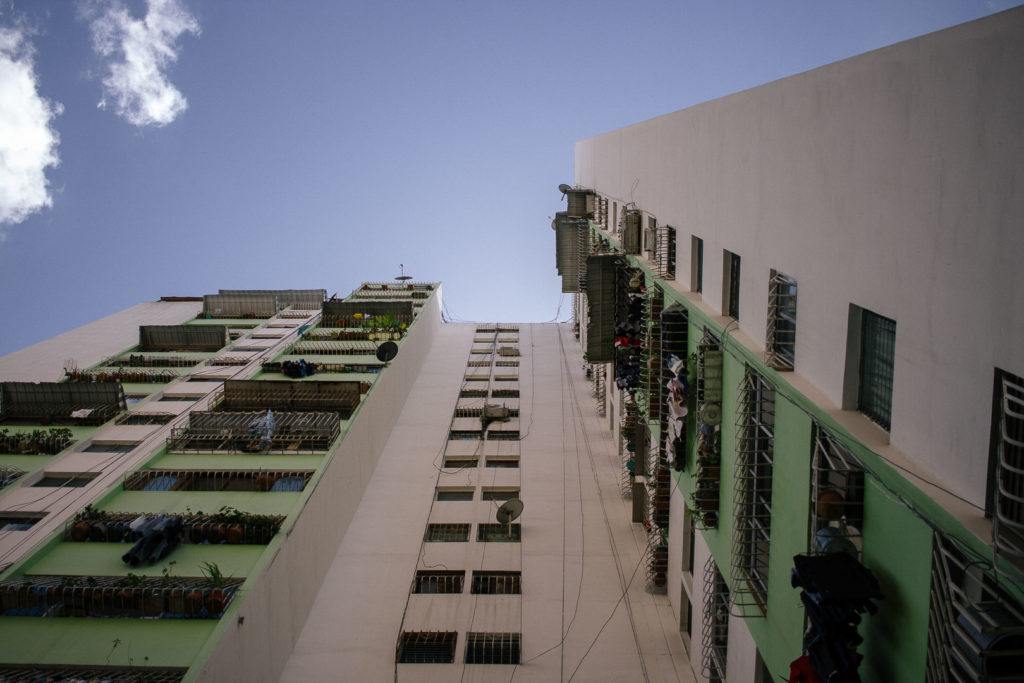
Daniel has always lived alone with his mother, his parents’ split-up before he was born. They live in an apartment of a building located in the Altagracia Parish, near the center of Caracas. There is a superhero in each corner of the house, or a ball, or toys scattered all around. Caroline always tells him, again and again, to pick them up and put them in a basket, but he always avoids to picked them up.
He liked Power Rangers and that’s why he was excited to practice karate as a child, but her mother never enrolled him. He likes them too. And from watching their show he got excited: he wanted, like them, to fight battles. Caroline then raised the question of Daniel practicing a martial art. She researched and was drawn to taekwondo for the discipline it’s required for training. He needed it because, as a vtrouble maker and unfocused as he was, it was hard for him to understand that there is a time for everything. He got distracted when she helped him with homework.
When she enrolled him and he began training, the child gradually began to focus. He got used to the fact that, when he got home, he had to change and go to his training; and when he returned, he knew he had to take a bath and then eat. Only later he could watch TV for a while. Routine, habits.
“I noticed he had more disciplined. That he knew that he was going to be promoted to another belt was great, because he knew that was the result of his perseverance and concentration.
Caroline talk about it with a trace of regret. It has been almost eight months since Daniel has not trained, and she thinks that maybe this made the boy recoiled: after he had managed to get an “A” in the first lapses, he was promoted to 2nd grade with “B”.
“He stopped training and I know he began to get distracted. But during that school year, Daniel had five difrent teachers. They came and go. The last one could not tell me if she saw any change in his attitude since he began, because she was not there anymore. Maybe he would have developed a fondness for the sport; but he could not continue.
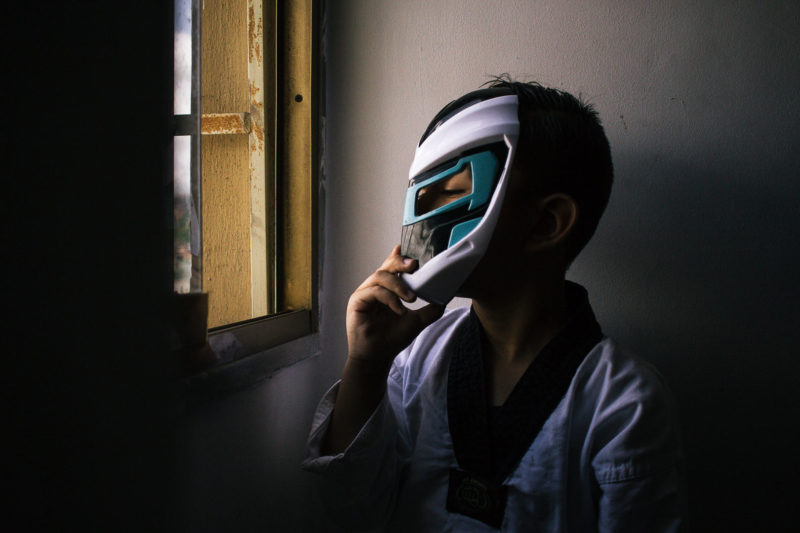
The academy was around the corner. Daniel does remember that: he looks out the window of the living room and points with his finger where it was.
“It’s here. My mom enrolled me up. Then there was a teacher, but she left the country.”
In a corner of his room there are the two toy boxes where he has his superheroes. These, like him, are strong, they kick and want to save the world. Checking one of those boxes, he finds a green glove that looks like a fist: it’s Hulk’s. He puts it in his right hand, and throws it, as if he were crashing it against something; as if he was suddenly in one of his taekwondo’s classes.
“I wanted to learn how to break wooden boards, but it was not my turn yet. One day, my mother took me to taekwondo and everybody had left. They were gone. I asked for Elisa and my mom told me she left the country.
That’s how recalls the epidode. But what really happened was that after Caroline received a WhatsApp message, they did not return to the academy.
Retuning to routine is a difficult verb for Daniel to conjugate.
After the announcement of the closure of the academy, the mother decided to compensate him by paying an hour and a half more at the school where he studied, to practice swimming and football: he finished classes at 4:00 pm and stayed until the 5:30 pm doing sports. Caroline, who is a statistical assistant at a major bank, could pay for it because she understood that these activities were enriching for her son. It does not matter that it was not the martial art. He would have the discipline from any sport.
Daniel was happy with those 90 minutes of grace, but sometimes he asked me if I had found another academy to practice taekwondo
“I also played soccer. I will be a goal keeper. And in swimming I dive rolling up, like a ball. But also, that closed. The teachers left. At least I have school transportation. It is managed by Mrs. Ely; she will work during September.”
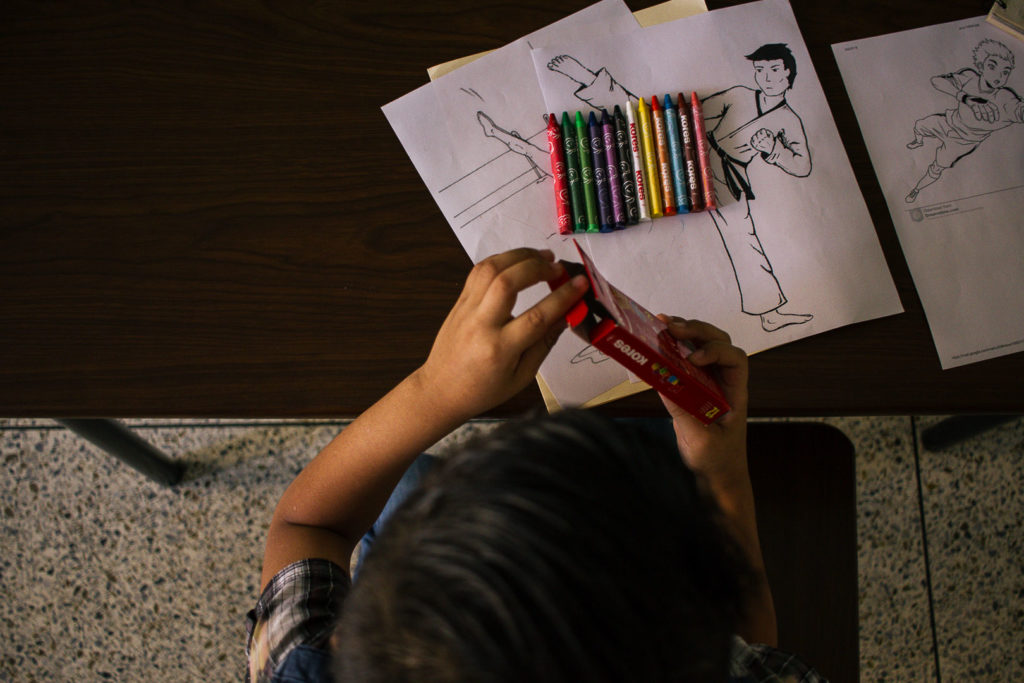
He says this because he knows that in September he will no longer be in the same private school where he studied his 1st grade, nor in the educational center where he went in the afternoons after classes to do his homework, to have swimming classes and soccer practices. Both institutions, which were in the same building, but were independent, decided not to reopen their doors because they could not overcome the crisis: the lack of teaching staff, on the one hand; financial difficulties, on the other.
So, he lost all these activities: neither taekwondo, nor the pool nor soccer.
When the mother told him, he immediately asked if she would find another place to play sports. She said: yes.
She never thought it would be so difficult.
“I’ve to find it, I’ve to.”
Caroline’s quest has been thorough, but without any success yet. She only has looked for areas near her home, because she does not have a vehicle and there are problems with public transportation, so that choosing a place far away could mean that Daniel will arrive late or maybe lose some practices. And because, in addition, due to logistic limitations, she could only be able to take him on Saturdays.
“I plan to enroll him in swimming in a place in El Paraíso. But at the moment I feel tied up. It is worrisome because there are less options in the country. I can’t enroll him in the three sports anymore. If I was in another situation, like a long time ago, I could enroll him in any sport he wanted, as long as time and his physical capacity could allow it. At the beginning of the year I felt uncomfortable with public transportation, but since the last three months it has become a serious problem. I have to take him in this same area for an ice cream, to the movies, when we previously used to go to other places. We feel confined.”
She will continue her search, evaluating the cost and analyzing the possible routes. She is willing to hire a transport service or waking up earlier so that Daniel can be on time. For doing that Caroline will need the strength he uses when throwing a kick into the air, the precision with which he catches the ball and the resistance with which he does not let himself sink into the water. She needs it to find an academy where to enroll her athlete in September.
The child’s name was changed to protect his identity.
Translation by Josefina Blanco

This story is part of the “The Children of the Crisis” series, which was written in association with the Community Learning Centre (CECODAP, by its Spanish acronym)
1741 readings
I was born in Guárico. Though my childhood dream was to be an opera singer, I am a journalist. My desk is an instrument where I make music with the voices I transcribe and arrange in counterpoint. I am a reporter for Crónica Uno.